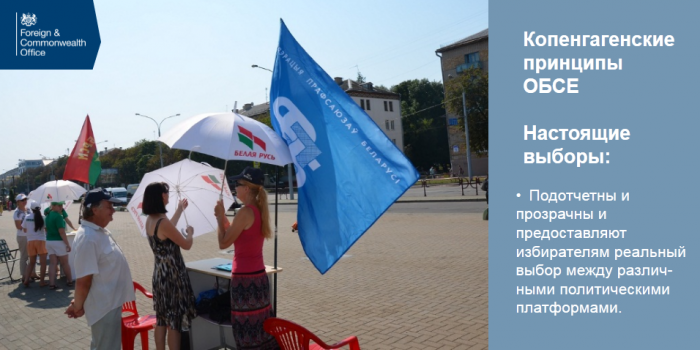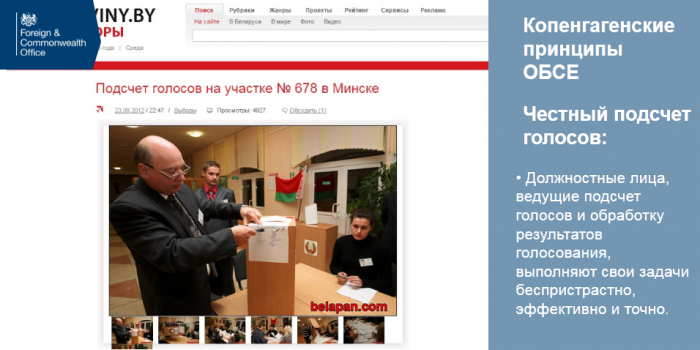28th October 2015 London, UK
Switching on to digital: Presidential elections in Belarus
On 11 October Belarus went to the ballot box to elect its President. Although the official turnout in elections is usually high, engagement is quite low due to poor conditions for political pluralism in the country. International observation missions, such as the Organisation for Security and Co-operation in Europe (OSCE), Office for Democratic Institutions and Human Rights (ODIHR) and others have criticized previous Belarusian elections.
While the (mostly online) non-state media provided a more balanced perspective reporting on both positive aspects and shortcomings of the overall campaign, the state media (print, radio and TV) mainly followed the incumbent president who was running for the fifth time.
At the British Embassy in Minsk one of our main priorities is to support human rights and democracy and to encourage political reform. Ahead of the elections we took the opportunity to take part in the online debate and used our new digital channels to promote the 1990 OSCE Copenhagen Principles which outline a number of human rights and fundamental freedoms. These include political pluralism and democratic societies based on free elections.
Internet penetration in Belarus is lower than the European average but the digital landscape is developing quickly. The majority of Belarusian internet users are aged between 19 and 34 and are very active on social media. Working with our policy experts, our communications team put together an online campaign using photos and graphics to help guide our audience through some of the OSCE principles and ideas.
We were the only EU Embassy publishing unique election-related material on social media and we asked our Ambassador to use his more established Twitter account to help amplify our messaging. Over the two months of the campaign our Twitter content received almost a thousand impressions per day.
We were an important part of the online conversation, often amongst the top ten contributors (by hashtag) to the debate and some of our multimedia content ranked as the most popular media-tweets.
Running a digital campaign of this kind was new to us and naturally there were things that we could have done better. Two major lessons learned are:
- prepare your content well in time – finding images we were allowed to republish proved very time-consuming
- ensure better cooperation with partners – we could have liaised more effectively with Belarusian NGOs involved in the election process to help get our messages to a wider audience
As part of our evaluation to test the overall effectiveness of the campaign we ran an online quiz based on our campaign content. Not many people answered correctly and so we could have been more effective in our messaging, but being online has allowed us to connect directly with our audience on a very important and relevant issue. These are early days in Belarus for digital engagement, but we are definitely in the right place to be part of the conversation as it develops.
For our latest content, follow the Embassy on Twitter (@UKinBelarus) or find us on Facebook.


